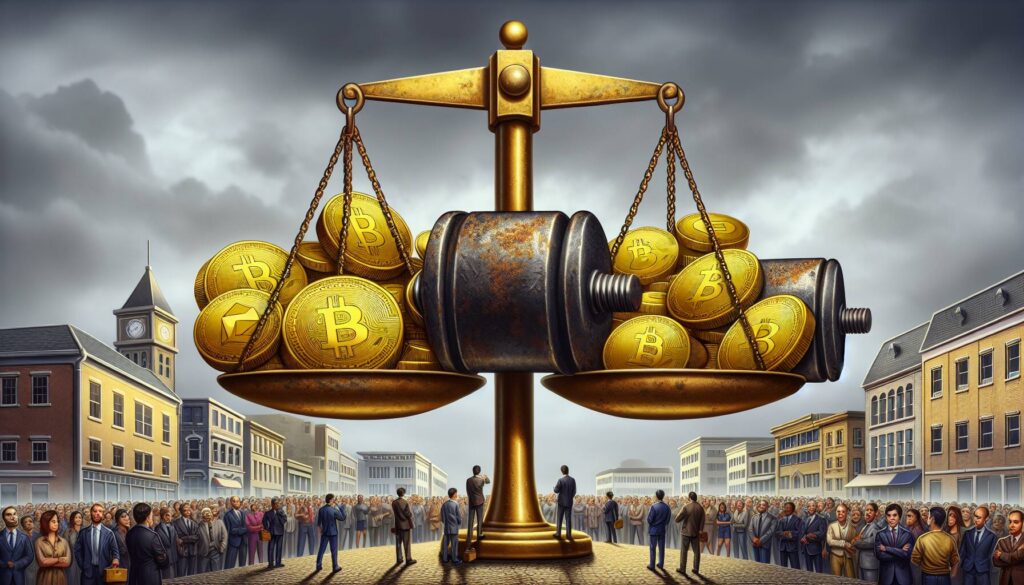The cryptocurrency world is on edge as Do Kwon, the founder of Terraform Labs, is reportedly considering changing his plea in a federal court hearing set for tomorrow. District Judge Paul Engelmayer of the Southern District of New York has indicated that Kwon may abandon his previous “not guilty” stance regarding multiple fraud and market manipulation charges linked to the dramatic collapse of the Terraform ecosystem.
Kwon, who was extradited to the United States after a complicated legal process with Montenegrin authorities, including a brief detention for using a fake passport, faces serious implications following the downfall of the Terra/Luna stablecoin system. The Terra network, once valued at over $18 billion, unraveled swiftly after its algorithmic stablecoin, TerraUSD (UST), lost its peg, leading to a catastrophic decline in the value of its counterpart token, Luna (LUNA).
The hearing scheduled for tomorrow comes on the heels of Kwon’s Civil fraud ruling by the U.S. Securities and Exchange Commission, which found him liable and imposed hefty penalties totaling $4.5 billion. As the trial date looms in January, the number of documents and data involved—reported to be about six terabytes—remains a significant factor in the proceedings ahead.
“The defense attorneys should, in advance of the proceeding, review with the defendant any plea agreement,” Judge Engelmayer mentioned, adding uncertainty regarding whether Kwon might plead guilty to all charges or is already negotiating a plea deal.
As developments unfold, the cryptocurrency community is watching closely, awaiting Kwon’s next steps and the potential ramifications for both him and the larger blockchain industry.

Do Kwon’s Potential Change of Plea: Implications and Context
Key points regarding Do Kwon’s case and its implications:
- Change of Plea Hearing Scheduled: District Judge Paul Engelmayer has scheduled a hearing where Kwon may change his plea from “not guilty” in federal court.
- Charges Against Kwon: He faces multiple fraud and market manipulation charges linked to the collapse of Terraform’s Terra/Luna stablecoin ecosystem.
- Extradition to the U.S.: Kwon was extradited to the U.S. from Montenegro after a series of legal challenges, highlighting the complexities of international law.
- Trial Timeline: A trial is tentatively set for January, with prosecutors reviewing significant evidence consisting of six terabytes of data.
- Civil Liability Established: Kwon and Terraform Labs have already been ordered to pay $4.5 billion in penalties in a separate SEC civil fraud case.
- Impact of Terra Collapse: The collapse of the Terra network, which once held a valuation of over $18 billion, has raised concerns about the stability of algorithmic stablecoins and investor protection.
This case not only impacts Kwon and Terraform but also raises critical questions about regulatory oversight in the cryptocurrency market and its future development.
Do Kwon’s Potential Change of Plea: Implications for the Crypto Landscape
The recent developments surrounding Do Kwon, the founder of Terraform Labs, highlight significant shifts in the regulatory atmosphere for cryptocurrencies. As Kwon prepares to potentially alter his “not guilty” plea in federal court, the implications of this case resonate throughout the crypto industry. With Kwon already found liable for civil fraud and facing hefty penalties, this moment could usher in stricter compliance measures across the sector.
Competitive Advantages: This situation may ultimately benefit regulatory bodies like the U.S. Securities and Exchange Commission (SEC). By enforcing accountability in high-profile cases, they can set a precedent that could strengthen their regulatory framework. Enhanced scrutiny of other cryptocurrency projects could lead to a more stable market, potentially attracting institutional investors who have historically been wary of the sector. Furthermore, clarity around regulatory expectations may stimulate innovation within compliant operations, differentiating them in a crowded market.
Competitive Disadvantages: On the flip side, a chilling effect could ensue. Startups may face hesitation in launching new projects due to fears of regulatory backlash, stifling innovation. Additionally, existing crypto firms might struggle with compliance costs, which could divert funds away from growth initiatives and innovation. This slow down could create an environment ripe for monopolistic behaviors among established players, as smaller companies exit the market due to financial strain.
This unfolding situation primarily impacts investors, developers, and consumers. Enthusiasts and retail investors may be caught in a bit of a bind. While increased regulation promises security, it also means less freedom for users and developers in the crypto space. Developers might find themselves facing more bureaucratic hurdles, complicating the swift progression of groundbreaking blockchain technologies. Ultimately, while Kwon’s case may enforce accountability, it risks undermining the entrepreneurial spirit that has driven the crypto industry forward.

















